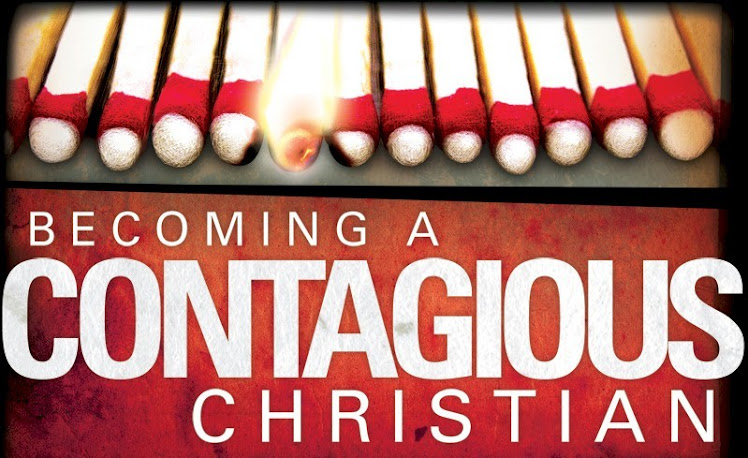
9th April 2013
Dear Archbishop Justin,
We write as representatives of organisations and as individuals who are deeply involved in the search for peace with justice in the Holy Land to express our deep concern over the remarks that have been attributed to you in a recent interview with the newspaper “Jewish News”. Amongst the aspects of the interview with which we were most saddened were that you regretted not voting against the General Synod decision to support EAPPI.
As you know, the main criticism that was levelled against EAPPI before the vote was, in the words of one of their more strident opponents, that it created “a cohort of very partisan but very motivated anti-Israel advocates who have almost no grasp of the suffering of normal Israelis”.
However, EAPPI seeks a just solution to the problems in the Holy Land that will benefit both Palestinians and Israelis. It operates in terms of what it calls “principled impartiality” with its Code of Conduct stating: “We do not take sides in this conflict and we do not discriminate against anyone but we are not neutral in terms of principles of human rights and international humanitarian law. We stand faithfully with the poor, the oppressed and the marginalized. We want to serve all parties in this conflict in a fair and unbiased manner in word and action.”
In our experience, all Ecumenical Accompaniers are scrupulous in their determination to be fair to all sides in their work, as befits both the programme and the senior positions they often hold as Church leaders, in the legal profession, as teachers and many other areas.
Its participants are given a full briefing on a wide variety of Israeli perspectives including taking an extended tour of the Holocaust Museum and travel to Sderot to meet Israeli people affected by rockets fired from Gaza. Their discussions with Israelis also include briefings from those who work with Palestinians most directly – some of whom wrote most powerfully in support of EAPPI when it came under its most sustained attack.
One of these was Professor Jeff Halper, who wrote as an Israeli Jew and as one of the founders of EAPPI in Geneva to remind us of the particular challenges that EAPPI addresses in the Palestinian West Bank. He says that many of these have no parallel for Israelis, “where children hardly need to be escorted to school and where children of settlers are escorted by the Israeli army, and Palestinian children walking miles through the hills of Hebron to school and being regularly attacked by thugs from the settlements armed with baseball bats and guns. Anyone who tries to equate the “sides” ignores the immense power differential created, among other things, by the Israeli Occupation. (Last time I looked, the Palestinians were not occupying Tel Aviv or demolishing Israeli homes.)” He went on to say that “as the head of an Israeli peace and human rights organization that tries to stop Israel’s wanton demolition of Palestinian homes (27,000 so far since 1967, almost none for “security” reasons), I call on the Synod to give the EAPPI all the support it can.”
It need hardly be added that some of the organisations who have attacked EAPPI most vociferously have seldom been noted for their own impartiality in the Middle East conflict, promoting as they do their “Speak out for Israel” campaign.
Many of us are frequent visitors to the Holy Land and are passionate in our belief that peace with justice will only come when all communities have their need for security, equality and dignity addressed. But this will not come whilst discriminatory laws, home demolitions, planning restrictions, checkpoint and movement restrictions and enforced family separations persist. Indeed, we agree with the former Speaker of the Knesset Avraham Burg that the constant building of illegal settlements on Palestinian land, not only prevents the emergence of a viable Palestine but jeopardises the future of the state of Israel.
We welcome the news that you are to visit the Holy Land in June. In hoping that you get the opportunity for a comprehensive view of the conflict, we encourage you to visit Israelis from all sides of the spectrum of opinion, including those who are risking so much in the campaign to end the occupation. We also encourage you to visit Palestinians who are suffering behind the walls, including the Christian community in Bethlehem, the people of the Jordan Valley, those living in refugee camps such as Aida and Balata as well as the people of Gaza who are so often marginalised and forgotten. We also encourage you to visit with international lawyers, who can provide vital background on the legal obligations, such as in the 4th Geneva Convention, that a situation of Occupation imposes.
Please support those who are advocating for peace with justice, please support those who are risking their reputations and even their lives to oppose military domination of one by another and please speak out for those who oppose oppression. Above all, we ask you to hear the 2009 Kairos call of the Palestinian Christians, who ask “are you able to help us get our freedom back, for this is the only way you can help the two peoples attain justice, peace, security and love?”
This comes with our prayers, support and good wishes for your important ministry.
Yours sincerely,
Laura Abraham, Founder of the Peace Cycle
Issam Aburaya
Suzy Andrews
Revd John Angle
Revd Alan Ashton
Right Revd Riah Abu El Assal, retired Episcopal Bishop of Jerusalem
Revd Andrew Ashdown, Enham Team Rector
Fr Robert Assaly, Chair Canadian Friends of Sabeel
Revd Warren Bardsley, Methodist minister and former Ecumenical Accompanier
Leonard Beighton
Leila Bentley
Karen Chalk, former Ecumenical Accompanier and Administrator of ICAHD UK.
Revd Colin Chapman
Anne Clayton, Friends of Sabeel UK
Diane Conti
Janet Davies
Joy Davies
Rebecca Dawson
Verity Elson, St Andrew’s Church Cobham
Adam Estle, Executive Director, Evangelicals for Middle East Understanding
Noushin Framke, Israel/Palestine Mission Network of the Presbyterian Church
Angus Geddes, member of Havant URC
Sharen Green
Professor Mary Grey, Emeritus Professor of Theology, University of Wales
Norma Hashim
Kamel Hawwash
Revd Dr Fiona Haworth, Chaplain, University of Worcester
Revd Canon Garth Hewitt, Honorary Canon of St George’s Cathedral Jerusalem
Donna Hicks, Convener, Episcopal Peace Fellowship’s Palestine Israel Network
Revd Wendy Hough
Carol Hylkema, IPMN
Israel/Palestine Mission Network of the Presbyterian Church (USA)
Barbara Ivy
Lucy Janigian
Revd Stuart Jennings, Methodist Minister and University Chaplain
Darlene Jones-Owens, Christians United for Peace
Keith Killough
Salaam Khoury
Stevie Krayer, signing as a concerned Jew
Revd Emma Langley, Priest in Charge of St Alban’s Church, Bristol.
Dibartolo Laurie
Dr Stephen Leah, Member of the Methodist Conference
Cilla Lynch
A.J. McDonald Jr. Christians United for Peace
Joy McKenzie
Audrey McKenzie
Elizabeth M. Molchany, USA, Attorney-at-law
Mary Morris, USA, former Ecumenical Accompanier
Jon Neall, former Ecumenical Accompanier
Michael Newbold
Revd Steve Openshaw, Ramsbottom and Edenfield Team Ministry
Revd Tom Patton, Methodist Minister and former Ecumenical Accompanier
Miranda Pinch, former Ecumenical Accompanier
Penny Potter
Dee Poujade, Ecumenical Accompanier
Ronan Quinn, Armagh, former Ecumenical Accompanier
Alexandra Pupo Quintino
Linda Ramsden, Director of ICAHD UK
Christine Robson
Len Rogers, Former Executive Director, Evangelicals for Middle East Understanding
Revd Chris Rose
Revd Dr Stephen Sizer, Vicar of Virginia Water
Revd Alison Shaw, Vicar St Boniface, St Budeaux, Plymouth, Sabeel Peninsula
Philip & Denise Small
Andrew Smith
Colin South, Chair of Living Stones
Jake Terpstra
David Toorawa
Maggie Vicuna
Michaela Whitton, peace activist
Revd David Willis
Revd Simon Winn
Revd Anna Wright, Blyth Valley Team Ministry, Wenhaston
If you wish to add your signature to this letter please do so here
For more information on EAPPI












